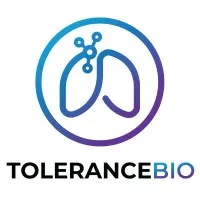
Tolerance Bio and ZipCode Bio Forge Strategic R&D Collaboration to Advance Targeted Thymus Therapeutics
In a landmark move that underscores the growing intersection of immunology and RNA-based medicine, Tolerance Bio, a young biopharmaceutical company dedicated to extending healthspan by preserving and manipulating thymus function, has announced a strategic research and development collaboration with ZipCode Bio, a biotechnology innovator in next-generation RNA medicines. The partnership is designed to accelerate the creation of precision therapeutics targeting the thymus—the central organ responsible for immune tolerance and regulation.
This collaboration combines two distinct but highly complementary areas of expertise. On one side, Tolerance Bio brings deep insights into thymus biology, immune aging, and tolerance modulation. On the other, ZipCode Bio contributes its proprietary SHARP (Single-component Homogeneous Amphiphilic Routed Particles) technology, an advanced platform for precise RNA delivery. Together, the companies aim to advance a new frontier of medicine: targeted thymus therapeutics for patients affected by immune-mediated diseases and age-related immune decline.
The Scientific Foundation: Why the Thymus Matters
The thymus is often described as the “master regulator of immune tolerance.” Situated just above the heart, the organ plays an essential role in producing and training T cells, the white blood cells that orchestrate immune responses. During early life, the thymus educates developing T cells to distinguish between “self” and “non-self.” This training prevents autoimmunity while equipping the immune system to respond effectively to pathogens.
However, the thymus undergoes involution with age. Starting in adolescence, thymic tissue gradually shrinks and is replaced by fat, leading to a decline in the diversity and quality of T cells. This process contributes to immune senescence—an aging-associated phenomenon characterized by increased susceptibility to infections, poor vaccine responses, and higher risk of autoimmunity and cancer. In addition, certain genetic predispositions or diseases can accelerate thymic dysfunction, leading to immune dysregulation even in younger individuals.
The ability to preserve, restore, or manipulate thymic function therefore holds profound therapeutic potential. Targeting the thymus could open pathways to prevent autoimmune diseases, extend immune resilience, improve vaccine efficacy in older adults, and slow aspects of biological aging tied to the immune system. Yet, despite decades of research, interventions directly modulating thymus biology have remained elusive, largely due to difficulties in delivering therapeutic agents to this small and complex organ.
Enter RNA Medicines and Targeted Delivery
RNA-based medicines have revolutionized biotechnology in recent years. From mRNA vaccines against COVID-19 to emerging treatments for genetic and rare diseases, RNA therapeutics offer flexibility, rapid development, and programmability unmatched by traditional modalities. However, the success of RNA therapeutics relies heavily on delivery—ensuring that RNA molecules reach the correct tissue and cell types without degradation or off-target effects.
ZipCode Bio’s SHARP technology represents an innovative step forward in this challenge. Unlike many RNA delivery systems that rely on complex lipid nanoparticles or multiple components, SHARPs are single-component, amphiphilic particles engineered for targeted biodistribution. This modularity allows researchers to route RNA payloads precisely to organs such as the thymus, potentially overcoming one of the biggest barriers in the field.
“Precision delivery is the next frontier in RNA therapeutics,” said Dr. Drew Weissman, Nobel Prize Laureate, pioneer of mRNA technology, and Co-Founder of ZipCode Bio. “Each advance in nucleic acid therapeutics has been built on decades of careful science. By partnering with Tolerance Bio, we have the opportunity to extend this work into thymus biology, an area with profound implications for immune health.”
Tolerance Bio’s Vision: Reprogramming Immune Tolerance
Founded in 2024 by a team of executives previously associated with Provention Bio and Semma Therapeutics, Tolerance Bio is positioning itself at the forefront of thymus-directed therapeutics. The company’s mission centers on extending healthspan—the years of life spent in good health—by tackling the decline of immune tolerance at its source.
Led by Francisco Leon, M.D., Ph.D., Co-Founder and Chief Executive Officer, Tolerance Bio is building a multi-modality platform designed to manipulate thymic function. This platform integrates biologics, gene therapies, and small molecules aimed at restoring balance in immune systems destabilized by aging or disease. By modulating the thymus directly, Tolerance Bio aspires to pioneer a new class of interventions distinct from conventional immunosuppressants or immune boosters.
“This collaboration represents a convergence of two complementary scientific visions,” said Dr. Leon. “By combining our approach to control thymic function with ZipCode Bio’s targeted delivery technologies, we aim to unlock new therapeutic possibilities for patients impacted by immune aging and dysregulation. It is a true honor to work with Dr. Weissman and his team to pursue our shared goal of translating foundational science into meaningful clinical impact.”
The Collaboration: Scope and Early Focus
The R&D collaboration between Tolerance Bio and ZipCode Bio will initially focus on preclinical development of thymus-targeting RNA therapeutics. The primary goals are twofold:
- Immune Aging – Developing interventions to preserve thymic function in older adults, thereby rejuvenating immune responses, reducing vulnerability to infections, and improving responses to vaccination.
- Autoimmunity – Addressing diseases such as type 1 diabetes, multiple sclerosis, and lupus, where a breakdown of immune tolerance allows the body to attack its own tissues.
In this partnership, ZipCode Bio will lead the development of thymus-targeting SHARPs, leveraging its platform to design and optimize delivery vehicles. Meanwhile, Tolerance Bio will advance translation into disease models, applying its deep biological expertise and therapeutic insights. Both companies will contribute scientific resources, establishing a collaborative framework rooted in shared innovation.
Voices from the Partnership
Beyond the science, the collaboration is also a story of leadership and shared vision.
- Jason Zhang, Co-Founder of ZipCode Bio, emphasized the transformative potential of the alliance:
“At ZipCode Bio, we’re focused on making RNA medicines smarter, safer, and more targeted. Tolerance Bio brings exceptional expertise in thymus biology and a proven leadership team with a strong track record in drug development. Together, we’re combining world-class RNA and delivery technology with deep biological insight to develop transformative therapies for immune health and aging.” - Dr. Weissman added perspective from the broader RNA field:
“We’ve seen what RNA can achieve in vaccines and rare diseases. Now, with technologies like SHARPs, we have the chance to bring the benefits of RNA to new areas, including thymus biology, which could reshape how we approach aging and autoimmunity.”
These voices reflect the broader ambition of the collaboration—not just to create incremental therapies, but to redefine how medicine engages with the immune system.
Broader Implications: A New Paradigm in Immunology
The partnership between Tolerance Bio and ZipCode Bio is more than a company-to-company agreement; it reflects a broader paradigm shift in biomedical research. Several key themes stand out:
- Aging as a Treatable Process – Once considered inevitable, biological aging is increasingly being targeted by therapeutics. Interventions that restore thymic function could contribute to healthier aging at the population level.
- Precision RNA Delivery – The success of RNA therapies now depends on moving beyond systemic delivery toward organ- and cell-specific targeting. Technologies like SHARPs could unlock this capability.
- From Suppression to Modulation – Traditional therapies for autoimmune diseases often suppress the immune system broadly, leading to side effects and vulnerability to infections. By contrast, thymus-directed therapies promise to recalibrate the immune system at its origin.
- Multi-Modality Future – Tolerance Bio’s approach of integrating RNA, biologics, and other modalities highlights the trend toward platform-based innovation rather than single-product development.
Challenges Ahead
While the scientific rationale is compelling, significant challenges remain. Delivering RNA safely and effectively to the thymus is an ambitious goal. Translating preclinical findings into human therapies will require careful validation, optimization of dosing, and long-term studies to ensure safety. Regulatory pathways for organ-targeted RNA therapeutics are also still evolving, which could influence timelines for clinical development.

Nevertheless, the combination of cutting-edge delivery technology and deep immunological expertise gives this collaboration a strong foundation. Both companies bring not only complementary scientific skills but also leadership with experience navigating complex drug development pathways.
The Future of Thymus Therapeutics
If successful, the Tolerance Bio–ZipCode Bio partnership could mark the beginning of a new class of medicines that directly target the thymus. Potential applications extend across multiple domains:
- Geriatric Health – Enhancing immune resilience in older adults.
- Autoimmune Disorders – Restoring tolerance and reducing the need for chronic immunosuppression.
- Transplant Medicine – Improving tolerance of transplanted organs and tissues.
- Cancer Immunotherapy – Supporting healthier immune systems capable of responding to emerging therapies.
These possibilities place thymus-directed therapeutics at the cutting edge of biomedical innovation, with implications not only for individual patients but also for public health systems grappling with aging populations and chronic immune-related conditions.
The announcement of a strategic research and development collaboration between Tolerance Bio and ZipCode Bio represents a bold step into a largely unexplored therapeutic frontier. By uniting Tolerance Bio’s pioneering work in thymus biology with ZipCode Bio’s breakthrough SHARP RNA delivery technology, the partnership aims to create precision therapeutics that could redefine how the medical field addresses immune aging, autoimmunity, and beyond.
As Dr. Leon summarized:
“This is about translating foundational science into meaningful clinical impact. Together, we believe we can chart a new course for immune health.”
If the collaboration succeeds, it could not only validate thymus-directed interventions but also cement the role of precision RNA delivery in tackling some of medicine’s most persistent challenges. For patients worldwide, it represents the promise of therapies that do more than treat symptoms—they may reprogram the immune system itself for a healthier, longer life.





